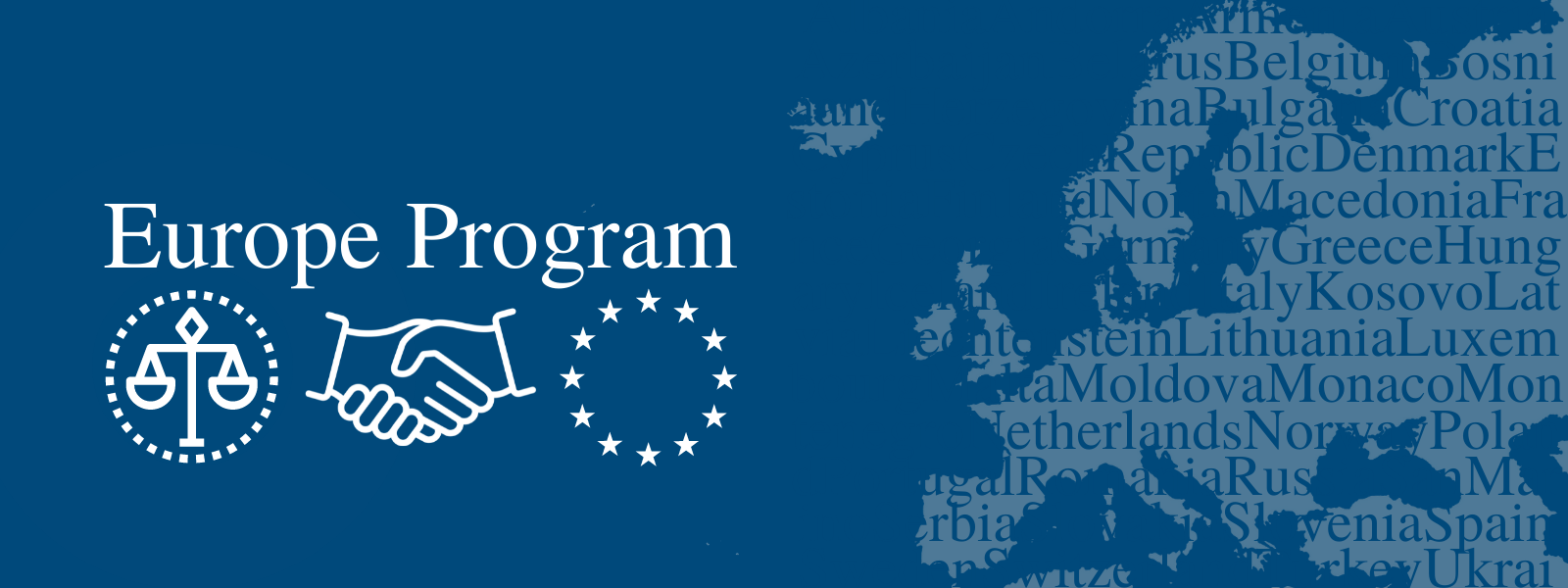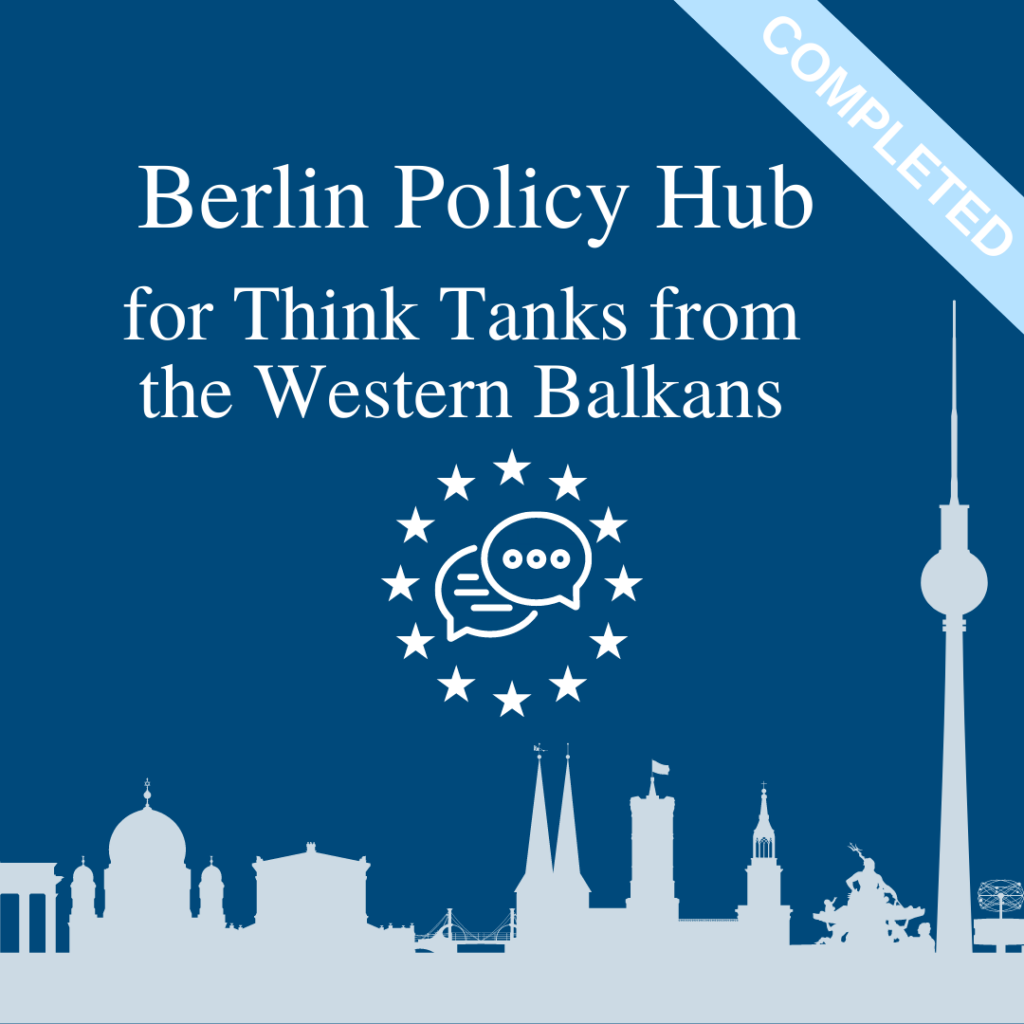
In May 1989, President George H. W. Bush spoke in Mainz, Germany about the dream of a “Europe whole and free” just months before the fall of the Berlin Wall and the first moves to extend the reach of a democratic, pluralistic, united Europe. Today, the vision of a “Europe whole and free” continues to guide the Europe Program of the Aspen Institute Germany in pursuing the completion of a Europe based on democracy, freedom, and human dignity.
Constructive exchange and international cooperation between various decision-makers and experts on the future of Europe are of utmost importance, especially in these challenging times. The Europa Program offers a reliable platform to discuss Europe’s current challenges and to develop potential solutions in both closed and public formats.
One of the focal areas of the Europe Program is supporting the path to Europeanization and Euro-Atlantic integration of the Western Balkans. In addition, the program concentrates on the challenges the EU is facing as it strives to increase its role as a global actor and has to defend its core values against new threats from outside and inside. Furthermore, the program looks at questions regarding strategic autonomy of the EU in different policy areas such as foreign and security policy, economic policy, climate and energy policy, and digital policy.In this spirit, the Europe Program hosts closed-door meetings to facilitate open and frank exchanges between decision-makers and experts, as well as public debates. The results are documented in various Aspen publication formats.
Aspen Initiative for Europe
The Aspen Initiative for Europe (AIfE) is a joint endeavor of the seven European Aspen Institutes that aims to pool the national resources and strengths of each partner to promote common values and shared ideas.

Civil Society & Think Tank Forum Berlin
The Civil Society & Think Tank Forum aims to strengthen the voice of civil society in the Western Balkan countries’ EU accession process by providing a platform for civil society representatives to develop joint policy recommendations and share these recommendations with government representatives from the region and other European contexts.
The Future of Europe
In its speakers’ series “The Future of Europe, the Aspen Institute Germany takes a closer look at the future of Europe and “European Strategic Autonomy”, covering different policy areas such as foreign and security policy, economic policy, climate and energy policy, and digital policy.
Western Balkans Background Discussions
With its Western Balkans Background Talks, the Aspen Institute Germany facilitates background discussions and exchange among MPs, political advisors from the Bundestag, and selected experts from government and civil society such as think tanks, political foundations, and journalists.
Western Balkans Regional Dialogue
Since 2009, the Regional Dialogue of the Aspen Institute Germany brings together high-level decision-makers, politicians, diplomats, and civil society experts from the Western Balkans, but also from the United States, Germany, the European Union, NATO, and other international and regional organizations to discuss the region’s current and future challenges.
Aspen Southeast Europe Foreign Ministers’ Conference
Behind closed doors, top politicians and senior officials from Germany and the U.S. met with foreign ministers from Southeast Europe. In the past years, Foreign Ministers from the region have gathered annually in Berlin for a regional meeting together with their U.S., European, and German colleagues.
Aspen’s Berlin Policy Hub for Think Tanks of the Western Balkans
With the Western Balkans policy organizations being disconnected from the EU, the Aspen Institute Germany functions as a policy hub in Berlin for policy research organizations from the Western Balkans in order to help them better connect with the policy scenes in Berlin and the EU.
Visegrad 4 – Germany Forum
The Visegrad 4 – Germany Forum was a joint project of the Aspen Institute Germany and the Aspen Institute Central Europe launched in 2017. The forum has focused on identifying common interests for strengthening V4-German cooperation and has developed recommendations.
Publications

Digitalization and Democracy in the Western Balkans
Podgorica as well as the input papers that guided the discussions, written by civil society experts and academic researchers.

Futures of the Western Balkans 2043
The publication contains a summary of the Foresight Process Workshop, which took place as part of the project “Western Balkans Initiative: Engagement for Progress and Stability”. This was kindly supported by the German Federal Foreign Office.

Bosnia and Herzegovina – New Government, New Reform Effort?
This white paper presents the outcomes and suggestions from the international conference on Bosnia and Herzegovina held on June 26, 2023.











